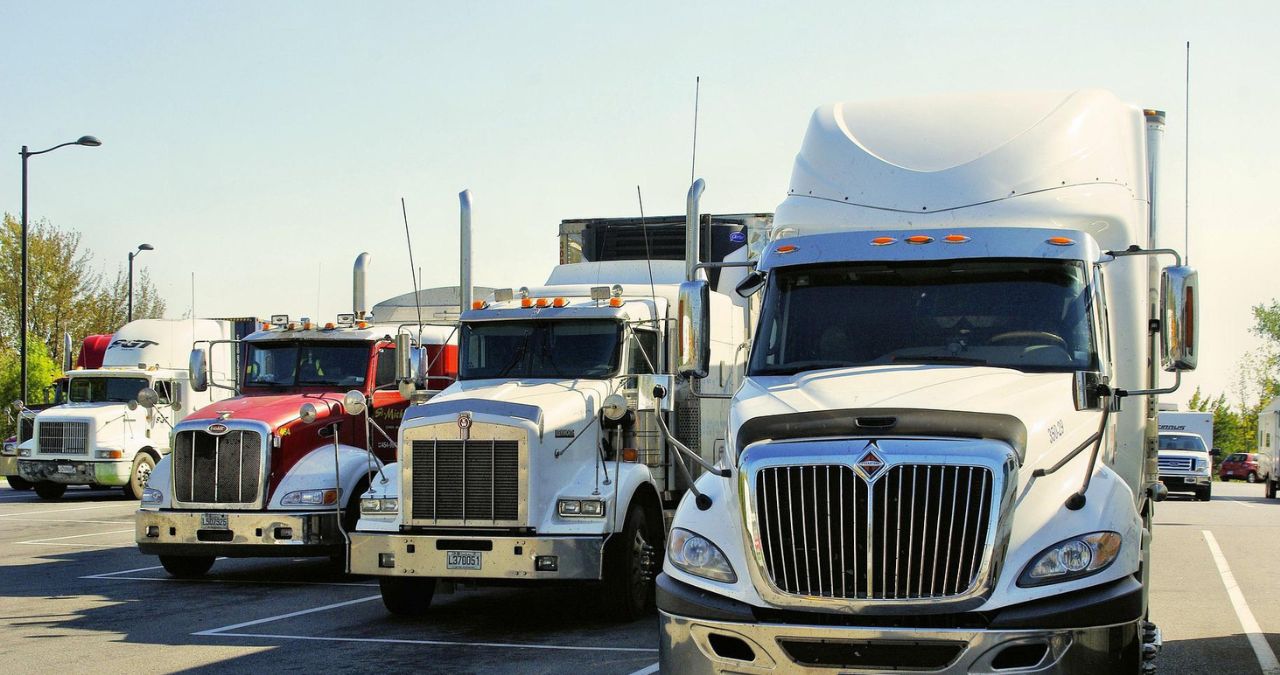Statistics from the food industry reveal that more than 90 percent of total food and produce in the United States will cross the doors of a refrigerated truck. Freshness, crispness, and softness are all important food factors that a refrigerated truck is responsible for. Without functioning refrigerated trailers and trucks, logistics as a whole would cease.
How Does a Refrigerated Truck Stay Cold?
The First Refrigerated Trucks
The first refrigerated trucks became commonplace on United States roads and highways in the mid-1920s. They were originally introduced due to the increased demand for one of the most popular consumer products of all time: ice cream.
Frozen ice cream could only be sold to customers in a frozen state, therefore, requiring a whole new system to keep the frozen treats as fresh as possible while the ice cream truck made its way through town.
Early refrigerated trucks were powered by methyl chloride gases. This type of gas is more volatile and expensive than the type of cooling gas that is in modern fridges or cooling systems today.
Although the ice cream industry started the race, other industries (such as butcheries and delis) would soon pick up on the temperature controlled trucks to ensure the same freshness for their own consumers.
Early refrigerated trucks were convenient, however, they were also much more costly than modern reefer trucks. Older reefer trucks required separate generators to keep them running. This wasn’t a convenience that every business could afford back then.
Refrigerated trucks once again experienced a sharp spike in popularity with the invention of a superior mechanism by Frederick McKinley Jones in the 1940s.
The Modern Refrigerated Truck
Modern refrigerated trucks are way different in comparison to the early start of cooling-on-wheels that we had from the 20s to 40s.
Without modern reefer trailers and trucks, the logistics, sales, and consumer industries wouldn’t be the same. While fridge trucks started transporting temperature-sensitive frozen goods such as ice cream, today they transport more than 90 percent of all consumer goods that make it to tables in the United States.
Most modern refrigerated trucks are diesel-powered, with a separate battery-powered supply that runs the refrigeration unit. Even if the engine is off, the battery-powered standby is there to ensure that temperature-sensitive goods can still remain cool. This feature comes in handy during any interim breaks or emergencies on the road such as traffic.
Modern cooling systems rely on three different things to keep the truck’s contents cooled down. These components are similar to most modern fridges – but converted for a running truck.
The three elements that you’ll find in a truck’s refrigeration system are:
- Condenser
- Compressor
- Evaporator
Modern fridge trucks require gases, usually tetrafluoroethane. These gases make their way from the condenser through to the compressor and evaporator.
An onboard battery unit will usually kick in to keep this process going in an emergency, or if the engine switches off and the cooling unit is still necessary.
Reefer Truck Maintenance
If a refrigerated truck is not working the way it’s meant to, immediate maintenance is necessary, or a company could risk spoiling perishable goods. Regular maintenance can reduce the likelihood of breakdowns or emergencies that affect logistics and food safety.
Some of the most common reefer truck malfunctions include fluid leaks, unsealed doors, cord or pipe damage, and ice build-up.
Cannonball Express Transportation
Cannonball Express Shipping Company has been providing top-of-the-line service at a reasonable rate. Based in Omaha, Nebraska, we provide nationwide refrigerated LTL services, as well as, local delivery services. Contact us today!
Nationwide Shipping Company Services:
- Refrigerated LTL deliveries in the lower 48 states
- Refrigerated Cross dock
Local Shipping Company Services:
- Redelivery Services
- Truckload & LTL Capabilities
- PUP
- Cross dock
- Transload
- Warehouse and Distribution capabilities from multiple Omaha Locations

